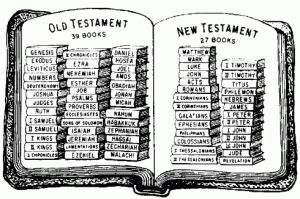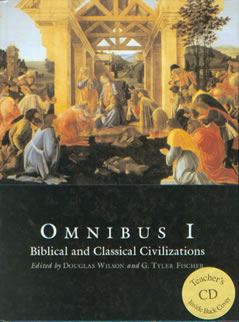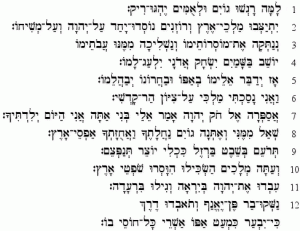 A few days ago I invited readers to
A few days ago I invited readers to
consider Galatians 3.10:
“For all who
rely onare of the works of the law are under a curse; for it is written, “Cursed be everyone who does not abide by all things written in the Book of the Law, and do them” (Galatians 3:10ESV, corrected).There are current debates about what this means and why some people are under a curse. I’m not going to contribute to that debate, except to point out that those arguing for the common and traditional idea that Paul is claiming that people are cursed because no one can perfectly keep the Law need to admit to the problems with that argument. How could Paul claim and convince people who knew the Scriptures that this was how the Law was supposed to function?
via Is “keeping the law” the same as sinless, perfect obedience?.
In this post I want to point out that the term “one of the Law” (the idea of someone “relying on” the Law is an ESV interpretation masquerading as a translation) most likely refers simply to Jews in Paul’s day.
The evidence for this comes from Romans 4.16:
That is why it is of faith, in order that the promise may rest on grace and be guaranteed to all his offspring—not only to the one of the law but also to the one who shares the faith of Abraham, who is the father of us all
Notice here that faith does not exclude “the one of the law” but includes him along with the believing Gentile who, as Paul explains in the rest of Romans 4, trusts God while uncircumcised the way that Abraham did when he was uncircumcised. As John Calvin writes of this text, the words “mean simply the Jewish nation, to whom the law of the Lord had been delivered.” Both Jews and Gentiles are justified by faith.
Then how did a different interpretation of the words in Galatians 3.10 become “the tradition”? Good question.
Indeed, John Calvin and many others insisted not only on giving a different meaning to Galatians 3.10, but even to Romans 4.14, though it is in the same passage as 4.16. In my opinion, such a violent shift in meaning is simply impossible. But that is now the tradition, even though it necessitates a definition of “keeping the law” which Paul does not endorse, and is incompatible with the rest of the Bible.
But the fact that the idea is traditonal doesn’t make it true or convincing. Whoever “one of the law” is, he or she is someone who can be justified by faith along with Gentiles. In Galatians 3.10, Paul is explaining why such a person needs to be justified, and we need to study the passage carefully to figure out his reasoning. But to claim that his language refers to people “relying on” the Law, is an insertion of an idea not found in the text of that passage.
Israel is under a curse and the Israelites need to be justified by faith, as do the Gentiles. That bedrock truth needs a better exegetical framework than what “the tradition” gives us.
Inaccurate Bible translations solve nothing.





